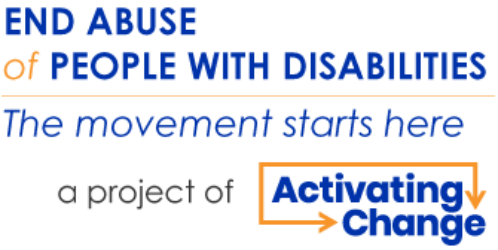Nothing About Us Without Us — Centering the Movement Around Self-Advocates
Nothing about us without us is a common phrase used in the disability rights movement to mean nothing should be created for a community without the meaningful participation of that community. Self-advocates have been leaders in the disability rights movement for years and are increasingly expanding their work in the survivor advocacy field. They have the wisdom and life experience to know how to dismantle ableism and best support victims of crime with disabilities, if only we listen.
This webinar, aimed at survivor advocacy organizations and disability service providers, will provide an overview of the participation of self-advocates at the intersection of violence and disability. The self-advocates on the panel will discuss the essential role self-advocate leaders must play if we want to end gender-based violence. Watch this engaging conversation with Cindy Bentley, facilitated by Leah Green.
